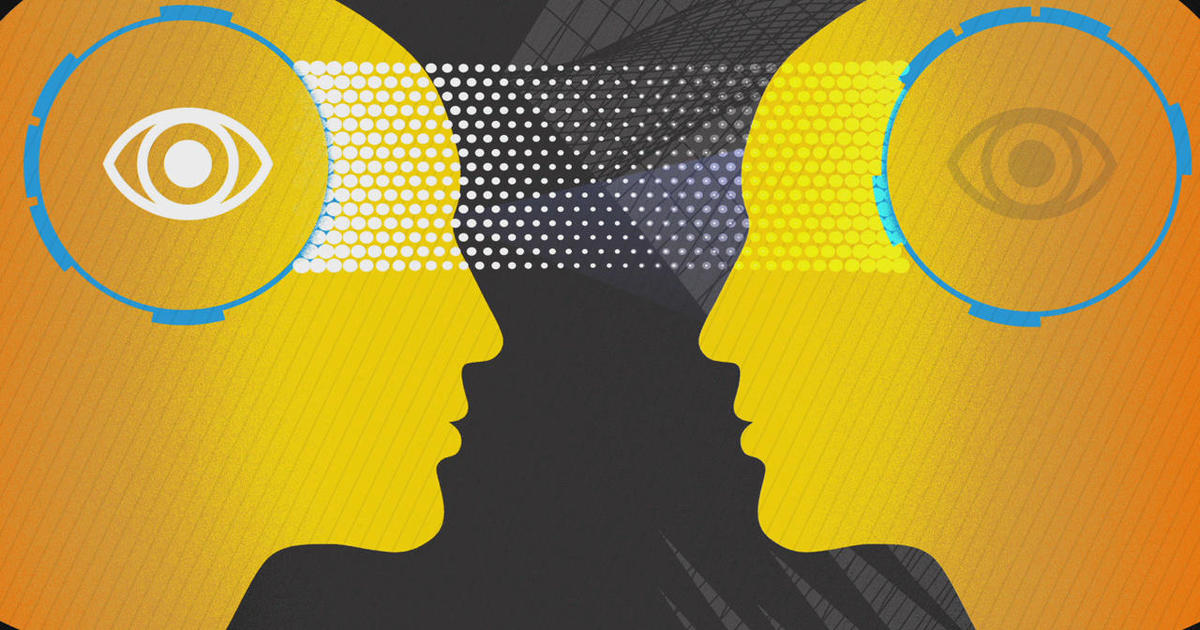A great article on the cognitive dissonance and the taboos of PSI.
Enjoy!
Open-Minded Science:
If Psi Evidence is Convincing, Why Isn’t It Widely Accepted?
by Steve Taylor
When I write articles explaining why I’m open-minded about the existence of psi phenomena (i.e. parapsychological or psychic faculties or phenomena), I usually receive many positive comments from readers who have had psi experiences (e.g. precognitive dreams or telepathic experiences) and are pleased that an academic is taking the topic seriously.
However, there are also usually a few sceptical comments, with questions like “if the evidence for these phenomena is there, why don’t we know about it?
If the evidence really exists, why do most scientists still reject the possibility of psi?”
This is quite a common viewpoint.
Many people assume that science is an open, objective enterprise and that scientists will gladly update and revise their views when presented with sufficient evidence.
And I would say that in most areas, science does operate in that way.
But unfortunately, the field of psi is often an exception.
Materialism as a Belief System
There is a prevailing worldview associated with science, and with modern western secular culture in general.
This worldview (or belief system) could be described as ‘materialism’ and is based on the principle that matter is the essential reality of the world, and that all phenomena can be explained in terms of the interactions of material particles.
According to this worldview, consciousness is produced by neurological activity, and our mental activity (thoughts, memories, feelings of love or happiness etc.) is the result of brain functioning.
Psychological problems can be explained in terms of neurological problems (hence the belief that they can be corrected with psychoactive drugs). Another tenet of materialism is that human beings are essentially genetic machines, living in separation to one another, and the survival and replication of our genes is the main motivation of our behavior.
This belief system also denies the possibility of psi phenomena.
Telepathy cannot be possible because it suggests that human beings are not separate, that our minds are not just enclosed inside our heads, so that we are able to sense each other thoughts and intentions without communicating directly.
Precognition suggests that the common sense linear view of time is not correct — in some circumstances, we may able to anticipate or sense future events.
Worldviews or belief systems are important to us.
They give us a sense of orientation, help us to make sense of our lives.
They even give us a sense of control.
Feeling that we understand the world means that we overstand it, with a sense of power.
So findings and theories which contravene a belief system are perceived as threatening.
And this applies to psi phenomena, which are often disregarded out of hand, without being properly evaluated.
The Evidence for Psi
In my view, the evidence for psi is already very convincing.
In recent years, a series of studies showing significant results from psi phenomena have been published in a whole range of major psychology journals.(1)
A number of comprehensive overviews of the evidence have also been published.(2)
Most notably, last year American Psychologist carried an article by Professor Etzel Cardeña entitled “The experimental evidence for parapsychological phenomena: A Review.”
Cardeña showed clearly that the evidence for phenomena like telepathy, precognition and clairvoyance has proven so significant and consistent over a massive range of difference experiments that it cannot simply be explained away in terms of fraud, the “file drawer” effect (when researchers don’t bother to publish negative results) or poor methodology.
Cardeña also showed that there is no reason at all to take the view that these phenomena break the laws of science, science they are compatible with many of the theories and findings of quantum physics (which is why many quantum physicists have been open to their existence.)
I don’t have space to include many specific examples of evidence here, but here are a couple.
A meta-analysis of more than three thousand Ganzfeld trials that took place from 1974 to 2004 had a combined ‘hit rate’ of 32 per cent.
A seven percent higher than chance rate may not seem so impressive, but over such a large number of experiments, this equates to odds of thousands of trillions to one—and a figure far too significant to explained in terms of the file drawer effect.(3)
In addition, in Ganzfeld experiments that have been undertaken with creative people, there has been a significantly higher than normal rate of success.
In 128 Ganzfeld sessions with artistically gifted students at the University of Edinburgh, a 47% success rate was obtained, with odds of 140 million to one.(4)
Similarly, in a session with undergraduates from the Juilliard school of performing arts, the students achieved a hit rate of 50%.(5)
Another study primarily with musicians had a 41% success rate.(6)
(These findings are very interesting because they clearly indicate a link between creativity and psi ability.)
It is not surprising that, as the statistician Jessica Utts has stated, “using the standards applied to any other area of science, it is concluded that psychic functioning has been well-established”.(7)
Even the prominent skeptic Ray Hyman admitted at an earlier stage in his career that the research findings on psi “do seem to indicate that something bend odd statistical hiccups is taking place. I also have to admit that I do not have ready explanation for these observed effects.”.(8)
So if the evidence is significant, why hasn’t it received a warm welcome by academics and scientists?
Why do so many members of the intellectual and academic community still refuse to take psi seriously?
Explaining Results Away
First of all, it’s important to point out that psi isn’t rejected by all scientists.
The evidence for psi—together the theoretical possibility of its existence — has convinced some more open-minded scientists, who weren’t so in thrall to the paradigm of materialism. (Such as Alan Turing, Marie Curie, Wolfgang Pauli, Max Planck, Eugene Wigner and JJ Thompson, Olivier Costa de Beauregard, John Stewart Bell, and many others too numerous to mention.).
Sadly though, the evidence for psi is all too often rejected out of hand.
For example, In 2011, the eminent psychologist Daryl Bem — at the present time, professor emeritus at Cornell University — published a paper called ‘Feeling the Future’ in a prestigious academic journal, The Journal of Personality and Social Psychology.
The paper described the results of nine experiments involving more than 1000 participants, eight of which showed significant evidence for precognition. Across a variety of different procedures, Bem found that his participants seemed to be able to ‘intuit’ information before it appeared.
In a simple example, they were shown a pair of curtains on a computer screen, and asked to click on the curtain where they thought an image would be. At that point an image was randomly generated, and equally likely to appear behind either of the curtains.
It was found that a significant number of the participants chose the correct curtain.
And since no image was actually there at the time the participants chose, this was seen as evidence of presentiment.(9)
However, prominent skeptics of psi phenomena were outraged, and ridiculed Bem’s findings.
Ray Hyman described the results as “pure craziness … an embarrassment for the entire field.”
The physicist Robert Park called it “a waste of time … it leads the public off into strange directions that will be unproductive.”
The science journalist Jim Schnabel characterized these responses as an attempt to “suppress the findings of a scientific colleague because his findings threatened his reality”.(10)
Even worse, there are cases of researchers changing the methodology of experiments as a way of nullifying positive results. In 2005, researchers at Notre Dame University conducted a series of eight Ganzfeld experiments, which found a highly significant overall ‘hit rate’ of 32%.
The researchers admitted that, as skeptics, this result made them feel ‘uncomfortable’, since it came ‘precariously close to demonstrating that humans do have psychic powers’.(11)
Seemingly spooked by this, the researchers quickly developed a further experiment, where they matched up individuals who had ‘hits’ during the previous eight experiments.
For some strange reason, these pairs produced the highly significant negative result of a 13% hit rate (significantly lower than the 25% chance rate). Encouraged by this negative result, the researchers claimed that it invalidated the previous eight experiments, and concluded that they had found evidence that telepathy did not exist!
Similarly, there was a great deal of controversy when the skeptical psi researcher Richard Wiseman attempted to replicate an experiment by Rupert Sheldrake which appeared to show that a dog responded psychically when its owner was on the way home.
According to the methodology used by Sheldrake, Wiseman’s four experiments actually yielded a more positive result than Sheldrake’s — the dog sat by the window 78% of the time that its owner was traveling home, compared to 4% during the rest of her absence. (In Sheldrake’s experiments, it was 55%, compared to 4% during the rest of the owner’s absence).(12)
That would seem to be a successful replication of Sheldrake’s experiments.
However, Wiseman chose to use a different criterion of success: Jaytee (the dog) had to go to sit by the window at the exact moment that her owner set off home.
If she went to the window before this, it would mean that she had failed.
And not surprisingly, by this criterion, the experiments were judged to be unsuccessful and bizarrely reported by the UK mass media as proof that Jaytee — and dogs in general — do not have psychic powers.
Cognitive Dissonance
This shows that it’s always possible to explain away evidence if you don’t like it.
If you are strongly attached to a belief system, any evidence that seems to contradict it creates cognitive dissonance, which in turn generates an impulse to ‘bury’ that evidence.
Most frequently, this means performing bizarre and highly irrational cognitive contortions, such as when creationists try to explain the existence of fossils by saying that they were put there by God to test our faith (or by Satan to tempt us into unbelief) or when skeptics rejig the methodology of experiments to try to convince themselves that significant results have not occurred.
There is an interesting example of the effect of cognitive dissonance — and the powerful grip of existing beliefs in the face of strong evidence — from the psychologist Susan Blackmore, who spent several years as a psi researcher.
One day Blackmore was asked to witness an experiment on telepathy with young children.
With admirable candor, she explained her reactions when the results turned out to be positive:
“[T]he children did very well. They really seemed to be getting the right picture more often than chance would predict. I began to get excited; even frightened. Was this really ESP happening right in front of my eyes? Or was there an alternative explanation?.…Somehow I just couldn’t accept that this was psi, and I was to go on arguing about the method used in future years. Was is just perversity? A refusal to accept my own failures? A deep fear of psi? Whatever it was, it led me into constant confusion”.(13)
This is a very revealing passage.
Blackmore is describing a state of cognitive dissonance — the confusion of facing evidence that conflicts with one’s beliefs and the anxiety that arises when one’s worldview is threatened.
This is probably very close to the anxiety that church leaders felt when they were confronted with scientific evidence that the Earth is not the centre of the Solar System.
Blackmore is honest enough to analyze her cognitive dissonance and question why she was unable to accept the evidence.
Another excellent description of cognitive dissonance comes from the psychiatrist Elizabeth Mayer.
Originally skeptical about psi, she began to change her attitude after a dowser managed to locate her daughter’s stolen harp.
After hearing about the significant findings of the Ganzfeld studies, she volunteered herself as a participant.
She acted as a ‘receiver,’ and describes her reaction when found she was able to pick out the images she had been sent:
“I felt the tiniest instant of overwhelming fear. It was gone in a flash but it was stunningly real. It was unlike any fear I’ve ever felt. My mind split. I realized that I knew something I was simultaneously certain that I didn’t know….The feeling was terrifying. My mind had slipped out from under me and the world felt out of control….I recovered quickly and launched in on logical explanations.”(14)
Realizing that the results couldn’t be accounted for by coincidence, Mayer began to revise her views about reality, which led to her developing her own Freudian-based theory of why skeptics are so resistant to evidence for psi.
This is a good example of the open-mindedness and flexibility which scientists should ideally possess.
Mayer’s conclusion was that skeptics have a deep unconscious fear that their beliefs may be wrong, and this is undoubtedly true.
As I mentioned earlier, belief systems have an important psychological function, which means that we are understandably reluctant to relinquish them.
But if it means anything, open-mindedness means having the courage to face and accept evidence that undermines our beliefs.
It means having the courage to accept that our beliefs may be based on assumptions rather than facts, and that our prejudices may be based on a psychological impulse to protect our beliefs.
It means having the courage to accept that the world may be stranger and more complex than we had previously thought.
My feeling is that — with the publication of papers like Cardeña’s — more open-mindedness is developing towards psi phenomena.
I think more and more scientists and academics are beginning to realize that the evidence for them is so significant that it cannot simply be explained away.
And this is to be welcomed, since it is in the true spirit of science.
References
1) For example, Bem, D. J. (2011). Feeling the future: Experimental Evidence for Anomalous Retroactive Influences on Cognition and Affect. Journal of Personality and Social Psychology, 100, 407–42; Storm, L., Tressoldi, P. E., & Di Risio, L. (2010a). A meta-analysis with nothing to hide: Reply to Hyman (2010). Psychological Bulletin, 136, 491–494. http://dx.doi.org/10.1037/a0019840; Storm, L., Tressoldi, P. E., & Di Risio, L. (2010b). Meta-analysis of free-response studies, 1992–2008: Assessing the noise reduction model in parapsychology. Psychological Bulletin, 136, 471–485. http://dx.doi .org/10.1037/a0019457
(2) For example, Cardeña, E., Palmer, J., & Marcusson-Clavertz, D. (2015). Parapsychology: A handbook for the 21st century. Jefferson, NC: McFarland; May, E. C., & Marwaha, S. B. (2015). Extrasensory perception: Support, skepticism, and science (Vols. 1–2). Santa Barbara, CA: Praeger.
(3) Radin, D. (2006). Entangled Minds. New York: Paraview/Pocket.
(4) Dalton, K. (1997). Exploring the Links: Creativity and Psi in the Ganzfeld. Proceedings of Presented Papers. The Parapsychological Association, 40th Annual Convention, 119–134.
(5) Bem, D., & Honorton, C. (1994). Does Psi Exist? Replicable Evidence for an Anomalous Process of Information Transfer. Psychological Bulletin, 115, 4–18.
(6) Morris, R., Cunningham, S., McAlpine, S. & Taylor, R. (1993). Toward Replication and Extensions of Autoganzfeld Results. Proceedings of Presented Papers. The Parapsychological Association 36th Annual Convention, Toronto, 177-191.
(7) Utts, J. M. (1996). An Assessment of the Evidence for Psychic Functioning. Journal of Scientific Exploration, 10(1), 3–30.
(8) Hyman, R. (1996). Evaluation of a Program on Anomalous Mental Phenomena. Journal of Scientific Exploration, 10(1), 31-58.
(9) Bem, D. J. (2011). Feeling the future: Experimental Evidence for Anomalous Retroactive Influences on Cognition and Affect. Journal of Personality and Social Psychology, 100, 407–425.
(10) Carr, B. (2011). Heresies and Paradigm Shifts. The Network Review, Spring 2011, 2-4.
(11) Delgado-Romero, E. A. & Howard, G. S. (2005). Finding and Correcting Flawed Research Literatures. The Humanistic Psychologist, 33, 293–303.
(12) Wiseman, R., Smith, M. & Milton, J. (1998). Can Animals Detect When Their Owners are Returning Home? An Experimental Test of the ‘Psychic Pet’ Phenomenon. British Parapsychology, 42, 137–142; Sheldrake, R. (1999). ‘Commentary on a Paper by Wiseman, Smith, and Milton on the ‘Psychic Pet’ Phenomenon.’ Journal of the Society for Psychical Research, 63 ( 857), 233-255;
(13) Blackmore, S. J. (1996). In Search of the Light: The Adventures of a Parapsychologist. Amherst, NY: Prometheus.
(14) Mayer, E. L. (2007). Extraordinary Knowing: Science, Skepticism and the Inexplicable Powers of the Human Mind. New York, NY: Bantam Dell. I am grateful to the psi author Chris Carter for drawing my attention to the examples of Blackmore and Mayer.







